There are a few things that need to happen in order to produce muscle growth. You need to use significant load when lifting weights Enough time under tension to create structural damage to the muscle tissue Enough stimuli to up-regulate anabolic hormones and increase protein synthesis Proper recovery and workout nutrition Many people often think that if they lift as heavy as possible, or use as much volume (sets and reps) as possible they will […]
Digestion Tells the Whole Story
What Goes on in the Gut
Digestion has been a hot topic of discussion in the last couple of years. With the profound research coming out about how important our gut bacteria can be has opened our eyes to a whole new way of thinking about our health. Everything from our immune systems, brain, and even fat loss can be dramatically affected by what is going on in our guts.
I have had my own experiences with poor digestion. At the age of about 9, my parents took me to numerous specialists to see why I was having such a hard time with my gut. From scans to enemas, to going dairy free and choking down glasses of Metamucil, I tried it all. Nothing seemed to be working long-term. In the end, it was really just my diet. I didn’t like eating fruit and vegetables at the time. I ate an abundance of processed food and school lunches. In addition, I was always an anxious kid. This caused stress, which is also a vital part of the whole digestion conundrum.
I simply needed to eat more fiber from food, reduce my processed food intake, and drink enough water. Learning to understand how to cope with stress would have been helpful at the time as well.
Turning Point
Early in my personal training career, I had the privilege to work for Chris Johnson of On Target Living. This was another turning point for me in regards to how I viewed health and how to eat. Chris preached of how digestion, elimination, and absorption of nutrients was one of the most vital keys to health.
At the time, I ate way too much protein in comparisons to healthy fats and mineral-dense foods such as leafy greens, spirulina and chlorella, and sprouted and fermented foods. As soon as I started to steer away from my traditional bodybuilding-style diet, and added to foods like flaxseed, sprouted almonds, wheatgrass, and Ezekiel Bread with coconut oil, things started to change.
As I continued to change my eating, I noticed how I was beginning to understand what I put in my body would change my gut, mood, and energy levels. I do a very good job getting plenty of nutrition in my body each day, but I am not one to shy away from going on a “junk food” eating frenzy.
While I feel better eating less, I have some internal love for eating until I can eat no more. So when I do drink diet soda, pizza, fries, or just plain overeat, my body tells me so. This, in turn, gives me more intrinsic motivation to give my body what it is asking for, and less of what it wants to reject.
Digestion has become one of my go-to evaluations when coaching someone on how to improve their daily lifestyle habits. I am going to share with you the seven foundations that I feel are the keys to not only improved digestion but possibly the missing key to your health success. It is a lengthy list, so don’t try to improve all of them at once. You may already be doing okay with some of these or even great. Pick 1-2 that you feel you need to improve on the most and start there.
1. Eat Slowly & Chew Your Food Fully
This is something I am constantly trying to do better at. I have been known to eat way to fast. In my training prime, I didn’t have much time to eat in between clients and created a bad habit of eating way to fast. We often end up eating in a stressed out, fast pace state due to our hectic lifestyles. Eating food at our desks, while running out the door, and in the car don’t allow us to not only enjoy your food but also chew and swallow our food correctly, which is a critical part of the food breakdown process. Eating while on the go is a short-term gain, long-term loss. You save time but end up not breaking down your food for optimal absorption and elimination. Slow down and chew your food, take time in between bites and enjoy, even when you are in a rush.
2. Consume Plenty Of Fiber And Fermented Foods
Eating plenty of fermented foods and fiber feeds the good bacteria in your gut. Having an imbalance of good and bad bacteria can cause food to go undigested. Eating enough fiber also helps move food through your digestive tract faster. Loading up on the veggies is one of the best ways to get your fiber. One thing you do want to be mindful of is how raw veggies affect bloating. While consuming raw veggies is great for health and getting the proper nutrients, not everyone’s digestive system agrees. Eating lots of raw veggies can be tough for the body to break down the cell wall of the plant and cause gas an bloating. Cooking your veggies can help reduce this issue while still getting in all the goodies. Fermented foods such as kimchi and sauerkraut are also fantastic for good gut bacteria. Sprouted nuts, seeds, and grains are also a better choice than traditional nuts, seeds, and grains due to containing fewer anti-nutrients such as lectins.
3. Move Your Body Daily (a workout and low-intensity Stuff Both Count)
Regular exercise, especially walking, also helps food move through your system efficiently. Try adding in walking, especially after your meal, into your workout program. While strength training, Yoga, and cardio help improve digestion, just general movement goes a long way in the digestion game.
4. Limit Foods You Are Sensitive To
Food sensitivities are a common culprit of bloating and poor digestion. If you are unsure as to what foods are causing these issues, keep a food journal of everything you eat as well as how you feel after and try to connect the dots and eliminate the ones you don’t tolerate. Some common foods that can cause digestive issues are dairy, gluten, raw veggies, and sugar.
5. Drink Plenty Of Water
Dehydration can lead to digestive problems, as your body needs plenty of water to break down and assimilate nutrients. Consuming beverages such as coffee, tea, soda, and juice don’t really help. You can have these beverages as you see fit, but getting in at least 50 ounces of water (more depending on size, activity level, etc. ), is critical.
6. Manage Stress
Stress can cause food to move too slowly or too quickly through your system, both to which can lead to discomfort. It can also reduce stomach acid over the long-term, making it harder to break down food. Stress will always be a part of our lives to some degree. Learning how to deal with it is the hard part. While you can’t eliminate stress, including things such as deep belly breathing, Yoga, meditation, time without distraction and no electronics, quality sleep, and massage can all help reduce stress, improve recovery, thus improving digestion.
7. Consider Certain Superfoods
I prefer to have people eat certain foods over supplements to improve digestion. Supplements such as digestive enzymes, HCL, magnesium, gelatin, and probiotics have their place but first, look into adding these. Below is a list of my favorite superfoods that contain tons of minerals, digestive enzymes, fiber, and improve your body’s gut bacteria balance.
- Apples (eat the skin)
- Ginger
- Turmeric
- Wheatgrass
- Spirulina
- Chlorella
- Flax, chia, hemp seeds
- Kimchi
- Sprouted and ancient grains
- Bone broth/collagen/bone marrow
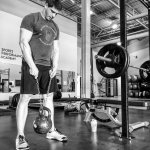


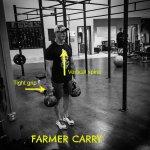
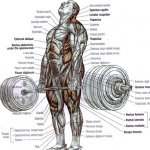

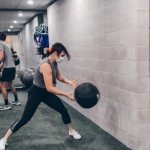
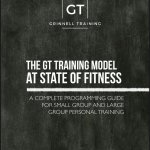


Leave a Reply